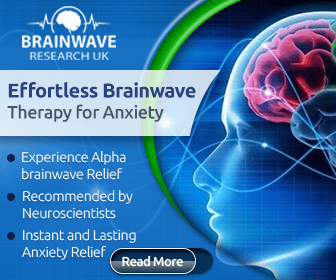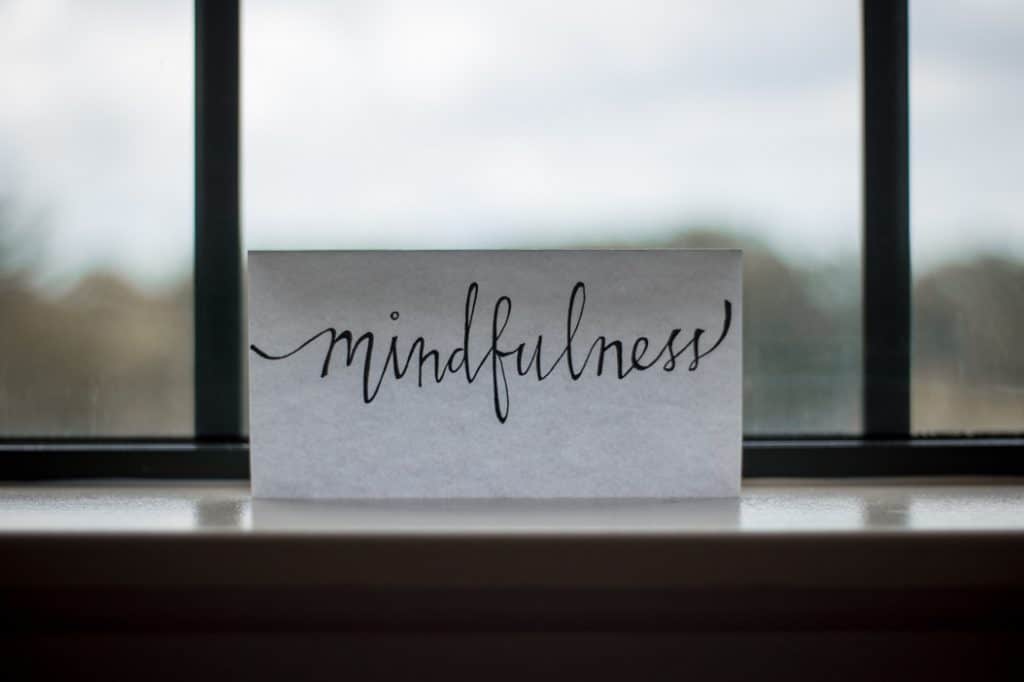What do you do when you’re feeling cold? You likely put on a sweater. The solution to feeling cold is a simple one.
Some feelings, however, do not have an easy fix remedy. Anxiety is a good example. What do you do when you’re anxious? How do you know you’re even suffering from an anxiety disorder?
In its simplest definition, anxiety can be described as feeling nervous, worried, tensed, or dread. In multiple times throughout your life, you’ve experienced anxiety. While this feeling can be unpleasant, it is necessary as it warns you by indicating something isn’t quite right. In short, feeling anxious can be an indication of danger or a major change in your life.
Unfortunately, some people struggle with anxiety every day. These people find themselves being anxious all the time and have to deal with nerves while at work, in school, and even at home. This extended feeling of anxiety is referred to as anxiety disorder.
Are you struggling form anxiety disorder?
Anxiety disorders can manifest differently in different people. If you suspect you’re suffering from an anxiety disorder, you should visit a health professional for professional help.
That being said, here are the most prevalent forms of anxiety disorder;
- Obsessive-compulsive disorder (OCD) – People who suffer from OCD have uncontrollable thoughts or pressure to carry out certain behaviors in a systematic manner.
- Panic disorder – This refers to when a person experiences sudden and often repeated episodes of intense fear and distress (commonly referred to as panic attacks) over a short period.
- Generalized anxiety disorder – This is when someone is in a prolonged state of severe tension, worry, and discomfort. While most people associate anxiety with a traumatic event, studies reveal a mother can pass down anxiety to a baby during the pregnancy period (1).
What happens when anxiety is not treated?
Many people tend to downplay symptoms associated with anxiety. Unfortunately, if left untreated, anxiety can cause serious physical, psychological, and emotional damage. Some of the consequences of untreated anxiety disorders include;
- Physical illnesses – As shown in one study, anxiety disorders can lead to physical symptoms such as body aches and fatigue. Due to this, most people suffering from anxiety disorders dedicate little to no time to see a doctor when they have a serious issue. Some patients suffering from anxiousness were also found to have physical diseases such as diabetes and congestive heart failure. However, they either associated the pain with the anxiety, or they declined to seek medical attention.
- Slowed career and life progression – Most people suffering from anxiety disorders often isolate themselves. This is usually a defense mechanism targeted at reducing panic attacks, anxiety, and fear by reducing human interaction. Unavoidably, some people will choose to stop going to work, which hinders their career growth and progression.
- Broken relationships – People who suffer from anxiousness oftentimes feel misunderstood by others. In most cases, this leads to isolation from friends and relatives, which then results in strained relationships.
There’s a lot to be said about anxiety disorders. Some of the things mentioned apply to you or someone you know. This then leads to the question, how do you relax your body and mind from anxiety?
Here are a few practical tips that you can put into practice to calm your nerves.
1. Designate time to focus on what stresses you
You get anxious about a particular subject; it is likely on your mind throughout the day. Obsessing over this problem will be of little help, and more often than not, will increase your anxiety towards the specific problem.
The solution that has seen positive results is to create some time to dive into what is leading to anxiety.
Instead of having little doses of the problem creeping up now and then, create a time when you get to dissect the problem. Write down your worries and concerns. Over time, you’ll naturally start to look for solutions to these problems. This technique is referenced by Dr. Biali Haas in Psychology Today as she looks at ways to calm the mind. (2)
2. Avoid caffeine
Caffeine is currently one of the most consumed products. It can be found on a variety of drinks and foods such as coffee, energy drinks, and chocolate.
After several studies, it was noted people suffering from anxiousness and took caffeine were more anxious in the end. If you feel you must have a cup of coffee or an energy drink to help you, it may be doing more harm than good.
Withdraw from caffeinated drinks and opt for healthier options such as green tea. Research from Kumamoto University in Japan has shown that green tea can help you relax. (3)

3. Meditation
Multiple sources claim meditation can help calm your nerves. Additionally, it is a process that has been used since time immemorial by different cultures over the globe.
While focusing on the science of it, there does seem to be a link between mindful meditation and lowered anxiety. In one study, researchers gathered 93 people diagnosed with anxiety. The research aimed to gauge if mindful meditation could lower anxiety levels over a period of 8 weeks.
The results from the research showed that patients who completed at least a session of the mindfulness-Based Stress Reduction program (MBSR) showed a significant drop in anxiety. (4)
You don’t need a lot to meditate. You need to find a conducive environment and work on your breaths as you focus on something calming or positive. A few minutes of meditation every day can significantly help you reduce anxiety.
(At this point, you may find helpful our article: “Mindfulness Meditation: What is, Ways to Practice, Benefits” –opens in new tab

4. Take good care of yourself
When most people talk about managing anxiety, they focus more on the mind and forget the body. While the mind does have a part to play, the body, too, should not be neglected.
When you overwork yourself, or not eating a proper diet, you are not helping yourself. You need to look through your daily activities to see what could be harming your body even further and making anxiety more prominent.
For instance, do you opt for junk food instead of a proper diet? Do you sleep for fewer hours than recommended? Do you sit at work for the whole day? All these are perfect recipes for breeding anxiety.
Formulate a daily routine to ensure you take care of your body. Create a meal plan and stick to it, have a sleeping schedule that allows you to sleep and reenergize, and take a walk after a few hours of sitting staring at the screen at work, in the library, or at home.
5. Plan to exercise more
As mentioned above, anxiety can have physical effects on your body. Different bodies have carried out research to see the effect exercise would have on someone suffering from anxiety.
The Anxiety and Depression Association of America (ADAA) has advocated for regular exercises on people living with anxiety. On their website (5), the ADAA refers to studies that have shown exercise as little as a ten-minute walk can be beneficial. In a specific example, the organization alludes to scientific evidence showing less active people are more prone to getting anxiety disorders. Moreover, the research cites that people who undertake consistent, vigorous exercise are 25 % less likely to develop anxiety disorders or depression up to a period of five years.
Of course, no one is saying you go star weights today. However, if you do not work out, it is something you should consider adding to your activities.
You do not have to start big; you can start with a 10 to 15-minute walk daily. Over time, increase on this and get your gym membership or buy workout equipment. A few minutes of working out per day will go a long way in reducing your stress levels.
6. Start expressive writing
People have been known to write down their feelings or thoughts in times of distress. As it turns out, this can be beneficial to the reduction of stress or anxiety.
James W. Pennebaker of Texas University tested the effects of expressive writing on 46 of his students. The experiment involved the students spending as little as 15 minutes a day writing about a traumatic event that happened to them.
Over a period of six months, he observed that students who wrote about their traumatic events used pain reliever medication less frequently and had fewer visits to the campus health center. (6)
According to Dr. James, you don’t have to write a thousand pages for you to feel better. A few minutes every day should do the trick. Get some writing material and start writing; it could help you deal with anxiety and depression.
NB: Before concluding, it is imperative to note while these methods are backed by tons of research and science, they are not the only solution out there. If you find yourself being anxious, these practical tips will be of assistance. However, you need to visit a professional for further assistance and guidance.
If you suspect you are suffering from anxiety, please consult a physician as soon as you can.
At the end of the day, there is what you can do to manage and eventually eliminate anxiety from your life. These tips will offer guidance on the best way to go about living a healthy and anxiety-free life.
Stay in Touch
 Join our newsletter by using the forms on this website or click here!
Join our newsletter by using the forms on this website or click here! Follow us on Google News
Follow us on Google News Follow us on Facebook
Follow us on Facebook
Featured image from Depositphotos
Sources:
- https://www.ncbi.nlm.nih.gov/books/NBK215128/
- https://www.ncbi.nlm.nih.gov/pubmed/8080351
- https://www.sciencedirect.com/science/article/abs/pii/S1756464619303093?via=ihub
- https://www.ncbi.nlm.nih.gov/pmc/articles/PMC3772979/
- https://adaa.org/living-with-anxiety/managing-anxiety/exercise-stress-and-anxiety
- https://www.health.harvard.edu/healthbeat/writing-about-emotions-may-ease-stress-and-trauma








